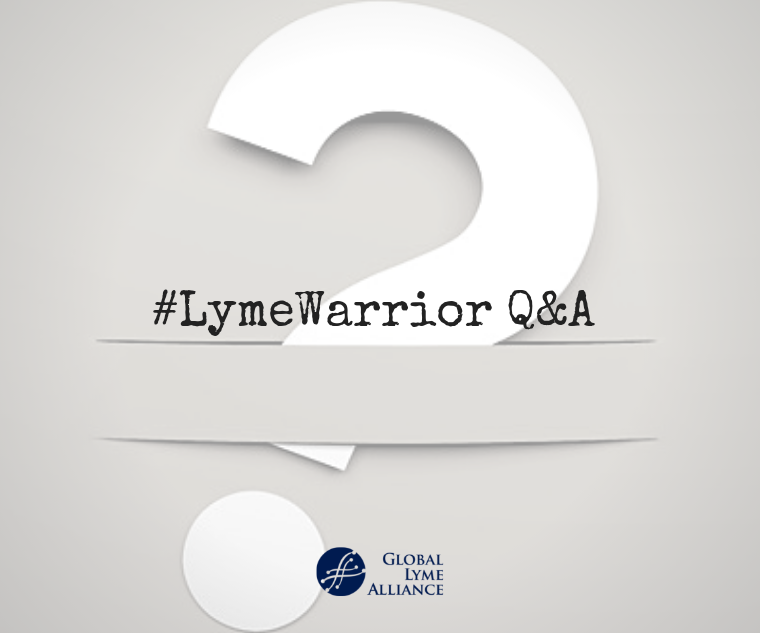
by Jennifer Crystal
Every few months, Jennifer Crystal devotes a column to answering your questions. Do you have a question for Jennifer? If so, email her at lymewarriorjennifercrystal@gmail.com.
Should Lyme patients get the flu vaccine? What about a COVID-19 vaccine when it becomes available?
The only person who can really answer this question for you is your Lyme Literate Medical Doctor (LLMD), because they know your specific case and can predict how you might react to these vaccines. That said, I can share my personal experience. In the webinar that Dr. Daniel Cameron and I did on Lyme and COVID-19, a participant asked if Lyme patients are immune-compromised. Dr. Cameron replied that we are, but not in the traditional sense of being immuno-suppressed. Rather, our immune systems are overactive, because they are fighting so hard against tick-borne illness. Therefore, we have increased immune reactions, which can happen when the body perceives a “threat” of a vaccine.
In 2009, I got the H1N1 vaccine, and had this type of immune overreaction; I got sick with fever and hacking cough. I worried I’d contracted H1N1 from the vaccine, even though doctors had assured me that couldn’t happen, and they were right. My H1N1 test was negative. My immune system’s response to the vaccine had simply caused my body to get sick. After a few days, I was fine, and, thankfully, vaccinated against a virus that I never ended up getting.
Because of my reaction to the H1N1 vaccine as well as my own medical history and current treatment protocol (which I cannot give out ), my LLMD and Primary Care Physician decided in subsequent years that I shouldn’t get the flu vaccine. They may advise differently this year as we head into a double threat of flu and COVID-19; I will be speaking with them both about it at upcoming appointments.
It’s possible that Lyme patients’ immune systems could overreact to a COVID-19 vaccine, but we just don’t know yet; we also don’t know what a COVID-19 vaccine will look like or how effective it will be . Because I already had COVID-19, I’m not sure if my doctors will recommend that I get a vaccine when it becomes available. They might, because there’s no guarantee that my antibodies against the virus provide immunity. If they think that the vaccine could make me sick for a few days but won’t actually give me COVID-19 again— instead, that it will protect me against it—then I’ll do it. I’d much rather be sick for a few days than a few months as I was with COVID-19. Furthermore, COVID-19 did not increase my Lyme or babesiosis symptoms, so I don’t suspect a vaccine would cause that to happen, either.
These are just educated guesses based on my experiences thus far. I’m not a medical doctor and I can’t give medical advice. I plan to talk with my doctors about both of these vaccines, and recommend that you speak with yours, too.
Can Lyme disease spontaneously go into remission? I’ve had waxing and waning symptoms for years.
I, too, had waxing and waning symptoms for years before I got diagnosed with Lyme disease and two of its co-infections, babesiosis and ehrlichiosis. I had an on-and-off again flu all through college, and each subsequent year new symptoms popped up: migraines, asthma, trembling hands. By the time I was diagnosed in 2005—eight years after my initial tick bite in 1997—I was bedridden. Until then I went through periods of high activity and periods of flu-like symptoms.
Stress is a spirochete’s best friend, so when you go through demanding times, your symptoms are likely to worsen. My sick periods almost always followed exams or a big work project. Trauma and emotional upheaval can set off spirochetes, as well—basically anything that increases your cortisol production over a sustained period will weaken your immune system, inviting dormant spirochetes to start wreaking havoc once more.
Lyme disease is a relapsing illness. While periods of illness can happen due to stress, or spontaneously, periods of remission can happen if your body is able to fight the infections. My body was able to do so with diminishing ability for many years until it got hit with another serious illness: mononucleosis. That virus crushed my already overtaxed immune system, bringing the untreated tick-borne illnesses out in constant force.
I hope you will see a LLMD and get on a good treatment regimen before that happens to you!
Why did your doctor think you initially had Epstein-Barr virus when you were clearly bitten by a tick?
I actually had Epstein-Barr virus and tick-borne illnesses. I was diagnosed with Epstein-Barr in 2003 when a serious case of mononucleosis (mentioned in the previous response) didn’t clear up, slipping into chronic active Epstein-Barr virus. The reason the virus didn’t clear up was that, unbeknownst to my doctors or me, I had underlying tick-borne infections. Epstein-Barr brought the symptoms of those infections to the forefront, but it would be another two years until I was also diagnosed with Lyme disease, babesiosis and ehrlichiosis.
Though it is clear now that I was bitten by a tick when I first got sick in 1997, it was not clear at the time. I had a splotchy red rash on my arm, not the more commonly known bull’s-eye rash. I had flu-like symptoms and hypoglycemia. Now, with increased Lyme literacy, a doctor hopefully would recognize such a rash and symptoms as indications of tick-borne illness.

Opinions expressed by contributors are their own.
Jennifer Crystal is a writer and educator in Boston. Her memoir about her medical journey is forthcoming. Contact her at lymewarriorjennifercrystal@gmail.com.

Jennifer Crystal
Writer
Opinions expressed by contributors are their own. Jennifer Crystal is a writer and educator in Boston. Her work has appeared in local and national publications including Harvard Health Publishing and The Boston Globe. As a GLA columnist for over a decade, her work on GLA.org has received mention in publications such as The New Yorker, weatherchannel.com, CQ Researcher, and ProHealth.com. Jennifer is a patient advocate who has dealt with chronic illness, including Lyme and other tick-borne infections. Her memoir, One Tick Stopped the Clock, was published by Legacy Book Press in 2024. Ten percent of proceeds from the book will go to Global Lyme Alliance. Contact her via email below.




-2.jpg)

